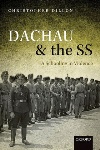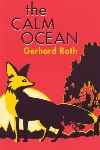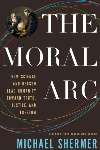Sir David Bell, vice-chancellor of the University of Reading, is reading Henry Marsh’s Do No Harm: Stories of Life, Death and Brain Surgery (Orion, 2014). “If someone is going to saw your head open, just hope it is the eminent neurosurgeon Henry Marsh, who writes powerfully here of his experiences. Probably insufferable and infuriating to work with, he still comes across as a man of deep insight and great compassion. Indeed, some of the most moving passages in the book are when he comes face to face with his ‘mistakes’. Quite brilliant.”

Neil Gregor, professor of modern European history, University of Southampton, has just read Christopher Dillon’s Dachau and the SS: A Schooling in Violence (Oxford University Press, 2015. “An assiduously researched and intelligently argued book that takes our understanding of the camp personnel to a different level. Even in a crowded field such as this, it genuinely stands out – above all, perhaps, in its account of the dynamics of masculine identity creation and performance in Dachau, opening up new terrain on gender and murder in this context.”

R. C. Richardson, emeritus professor of history, University of Winchester, is reading Nikolaus Pevsner’s The Englishness of English Art (Peregrine, 1956). “This classic study is now inevitably somewhat dated, and some of its quirky judgements appear uncomfortably conspicuous. But the author’s observations on the distinctive features of English architecture as well as art – all the more penetrating, perhaps, coming from a refugee from Nazi Germany – stand out as clearly as ever, as do his secure mastery of detail and his skill in connecting art forms with poetry, philosophy and science.”

Uwe Schütte, reader in German, Aston University, is reading Gerhard Roth’s The Calm Ocean (Ariadne, 1993). “Often, literature slows things down to enable a closer look. With an almost painful immediacy, this novel allows readers to experience life in rural Austria in the late 1970s. The stunning beauty and richness of the natural environment provide a backdrop to various violent occurrences, as Roth lays bare fascism’s hidden roots lurking beneath the idyll of country life.”

Robert A. Segal, sixth century chair in religious studies, University of Aberdeen, is reading Michael Shermer’s The Moral Arc: How Science and Reason Lead Humanity toward Truth, Justice, and Freedom (Henry Holt, 2015). “Shermer, the publisher of Skeptic magazine and a firm atheist, argues that science, not religion, has been responsible for what he deems the progressive spread of morality worldwide. By science, he means less scientific discoveries than reasoning and testing. He has disdain for the claim of clerics that secularisation is the cause of moral regress and that terrorists cannot be religious.”
Register to continue
Why register?
- Registration is free and only takes a moment
- Once registered, you can read 3 articles a month
- Sign up for our newsletter
Subscribe
Or subscribe for unlimited access to:
- Unlimited access to news, views, insights & reviews
- Digital editions
- Digital access to THE’s university and college rankings analysis
Already registered or a current subscriber?

